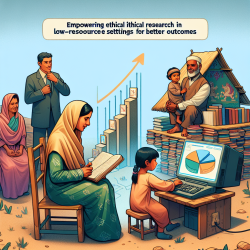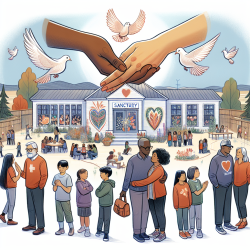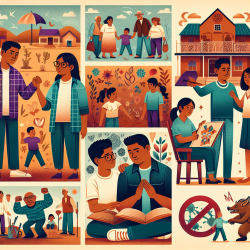Introduction
In the face of global crises like COVID-19, the resilience of communities is often tested. A recent study titled "Women's groups, covariate shocks, and resilience: An evidence synthesis of past shocks to inform a response to COVID-19" provides valuable insights into how women's groups can serve as pillars of strength during such times. This blog explores the findings of the study and offers guidance for practitioners seeking to enhance their skills and contribute to better outcomes for communities.
The Role of Women's Groups in Resilience
Women's groups have long been recognized as a crucial strategy for advancing empowerment, health, and economic outcomes in low- and middle-income countries. These groups, whether self-help groups (SHGs), village savings and loan associations (VSLAs), or other forms, have demonstrated their ability to enhance the resilience of their members and communities during covariate shocks such as natural disasters, economic crises, and pandemics.
Key Findings from the Study
The study synthesized evidence from 90 documents to understand the impact of past shocks on women's groups and their ability to mitigate these effects. Here are some key findings:
- Covariate shocks often disrupt group activities and reduce resources, but linkages to formal institutions can help mitigate these impacts by extending credit beyond the affected resource pool.
- Women's groups provide resilience to members and communities, although results vary based on shock severity, group purpose, and structure.
- Actions to support individual resilience, such as increased payment flexibility, may sometimes conflict with group sustainability.
- Partnerships between women's groups and local governments or NGOs can enhance community responses during crises.
Implications for Practitioners
For practitioners working with women's groups, these findings underscore the importance of fostering sustainable access to financial resources and building strong institutional linkages. Here are some actionable steps:
- Encourage women's groups to establish connections with formal financial institutions to ensure access to credit during shocks.
- Promote flexible policies within groups to balance individual and group resilience.
- Facilitate partnerships with local governments and NGOs to leverage resources and enhance community response capabilities.
- Focus on equity considerations to ensure that the benefits and burdens of group activities are distributed fairly among members.
Encouraging Further Research
While the study provides a comprehensive synthesis of existing evidence, it also highlights gaps that warrant further exploration. Practitioners are encouraged to engage in research that examines the long-term impacts of shocks on women's groups and their members, with a focus on understanding differential impacts across various contexts and populations.
To read the original research paper, please follow this link: Women's groups, covariate shocks, and resilience: An evidence synthesis of past shocks to inform a response to COVID-19.










